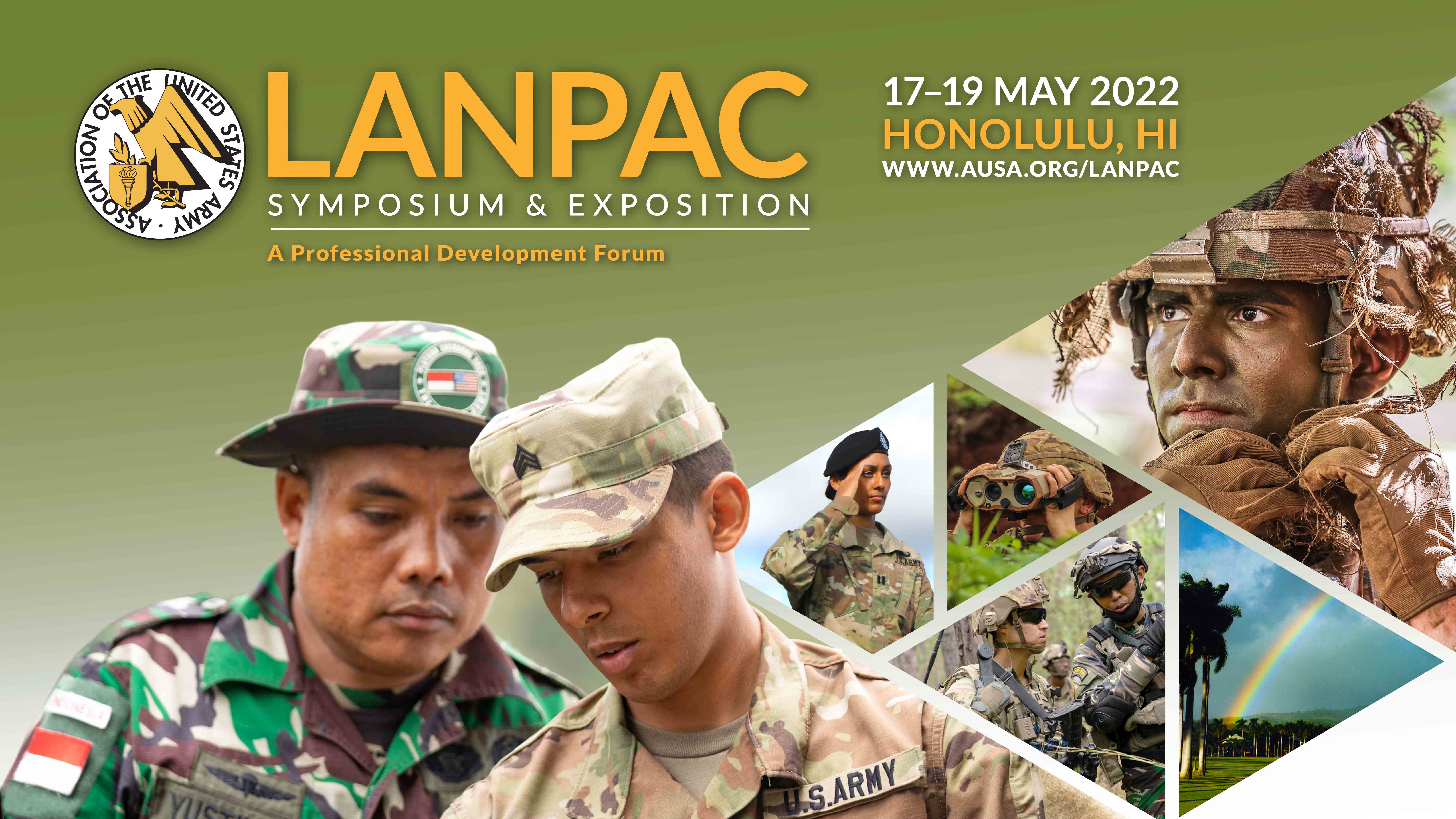NATO Showing Interest in Global Threats
NATO Showing Interest in Global Threats

The Association of the U.S. Army’s LANPAC Symposium and Exposition in Honolulu comes at a time when the Russian invasion of Ukraine is influencing national security discussions about the Indo-Pacific.
The May 17–19 LANPAC Symposium and Exposition at the Sheraton Waikiki will draw U.S. and foreign leaders for discussions about Indo-Pacific security issues, focused on current and future challenges facing the U.S. and its many partners and allies in the region.
The agenda is available here.
Advanced registration for LANPAC ends May 11. In-person registration, at a higher fee, opens May 16 at the hotel.
China, described by U.S. defense officials as the “pacing challenge” facing the U.S. because of the challenges it poses militarily, economically, politically and technologically, and the nuclear-armed North Korea, with its threatening leader, are the center of many Indo-Pacific discussions for the U.S. and partners to address.
The audience for these discussions may be widening as NATO may be taking a bigger interest in the Indo-Pacific as a response to Russia’s assault on Ukraine.
“NATO must have a global outlook, ready to tackle global threats,” said British Foreign Secretary Liz Truss. This includes potential involvement in the Indo-Pacific, far from European soil.
“We need to preempt threats in the Indo-Pacific,” Truss said, calling on NATO to work “with our allies like Japan and Australia to ensure the Pacific is protected.”
“And we must ensure that democracies like Taiwan are able to defend themselves,” she said April 27 in a foreign policy speech in London.
“We need a global NATO,” she said, explaining that she didn’t want to expand NATO membership but instead expand its outlook to include global threats.
North Korean leader Kim Jong Un said April 30 that he’d use his nuclear weapons in a preemptive attack if threatened, a statement not unlike threats by Russian President Vladimir Putin to use his nuclear weapons if his attack on Ukraine is threatened by NATO.
“During the Cold War, Western allies fueled each other’s prosperity, and we restricted flows of trade, investment and technology to the USSR,” Truss said. “In the 1990s, these constraints were removed, but it didn’t lead to the expected gains in economic openness and democracy. We took progress for granted instead of applying the necessary carrots and sticks.”
“We now need a new approach, one that melds hard security and economic security, one that builds stronger global alliances and where free nations are more assertive and self-confident, one that recognizes geopolitics is back,” she added.
Such an expansion is expected to be part of a NATO summit in Madrid in late June.

